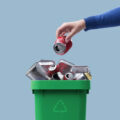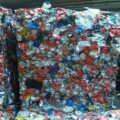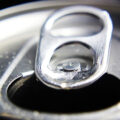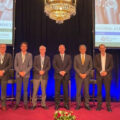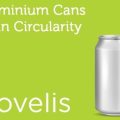Recycling in Brazil has remained at 98% for 15 years
During COP30 held in Belém, the International Aluminium Institute (IAI) announced that aluminum beverage cans reached a global recycling rate of 75% in 2023, a decisive step on the path towards full circularity in the sector.
This achievement places the industry more than halfway towards the 80% recycling target for 2030 set by the Global Beverage Can Circularity Alliance (GBCCA) during COP28.
The milestone is highlighted in a new global study commissioned by the GBCCA and conducted by Eunomia Research & Consulting, considered the most comprehensive analysis to date on beverage container recycling. The report compares recycling levels for aluminum, glass and plastic (PET) packaging in 35 countries—including Europe as a single market—which together account for 90% of the global aluminum market, 88% of PET and 84% of glass.
“This result demonstrates real progress in keeping aluminum in circulation and out of landfills,” said Marlen Bertram, Director of Scenarios and Forecasts at the IAI. “Reliable and consistent data is essential to strengthen recycling systems around the world. There are still many regions without accurate information, and that gap must be closed through closer collaboration between governments and industry.”
The study follows the European methodology defined in Decision 2005/270/EC and is part of a three-year program to harmonize definitions, improve data quality and increase transparency in recycling information.
Main results
- Aluminum achieved the highest global recycling rate: 75%, well above PET (47%) and glass (42%).
- It maintained good results even in regions with less developed waste management systems, reflecting its high material value and circular nature.
- In East Asia and the Pacific and in Latin America and the Caribbean, rates reached 94.6% and 94.0%, respectively, figures well above those of other materials.
“At Crown, sustainability is at the heart of everything we do,” commented Sandrine Duquerroy-Delesalle, Vice President of Global Sustainability and External Affairs at Crown Holdings. “Achieving a global rate of 75% represents a decisive step not only for our industry, but also for the circular economy. It is especially significant to achieve this in Brazil, a country that demonstrates how an inclusive circular economy can empower recycling workers and recover the most valuable materials from the production cycle.”
From Eunomia, its technical director Andy Grant stressed that the results “highlight the need to continuously improve recycling infrastructures and policies,” and added that having better data “will allow setting more effective targets and closing recycling gaps globally.”
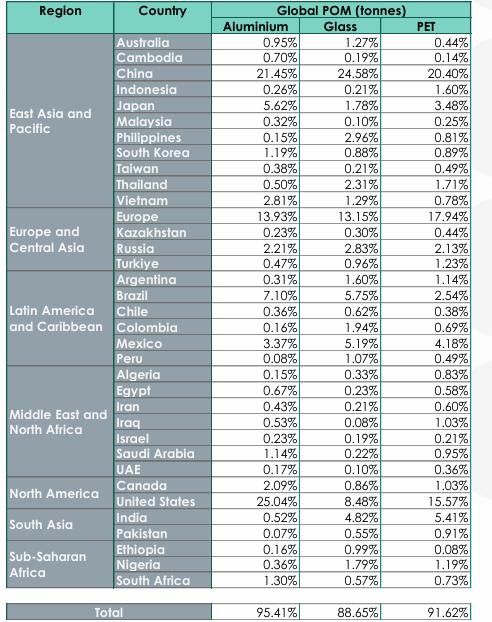
Aluminum cans remain the most recycled single-use beverage container in the world, a position reinforced by the sector’s commitment to move towards closed-loop, can-to-can recycling.
Ramon Arratia, Director of Sustainability at Ball Corporation, highlighted that in Brazil—one of the company’s main markets in South America—can recycling has remained at 98% for 15 years, thanks to the high value of aluminum and the work of more than 800,000 collectors who participate in the process.
The report also reveals large regional differences in collection and recycling rates, derived from the disparity in infrastructures, policies and waste management systems. Significant information gaps persist:
- 13 countries lack data on aluminum recycling.
- 10 do not report figures on glass and 6 on PET.
- 24 countries were rated with low data quality or total absence of information on aluminum.
These deficiencies reinforce the urgency of improving data collection and transparency.
Francisco Pires, Head of Strategy and Sustainability at Novelis, assures that “As the world’s largest recycler of aluminum cans—more than 84 billion per year—we have circularity at the heart of our business”
The long-term vision of the GBCCA aims to achieve near 100% recycling by 2050, in line with the net zero emissions scenario of the International Energy Agency (IEA). To this end, the study recommends:
- Improve data collection and transparency.
- Establish national or regional aluminum can recycling targets.
- Implement policies that guarantee recovery quality.
- Publish information on progress regularly.
From Japan, Midori Narita, Director of Sustainability of the UACJ (United Aluminum Company of Japan) group, celebrated that the country has reached a rate of 99%, and highlighted the company’s efforts to invest in new technologies and recycling plants in the USA, Japan and Thailand to continue improving the proportion of can-to-can recycling.




